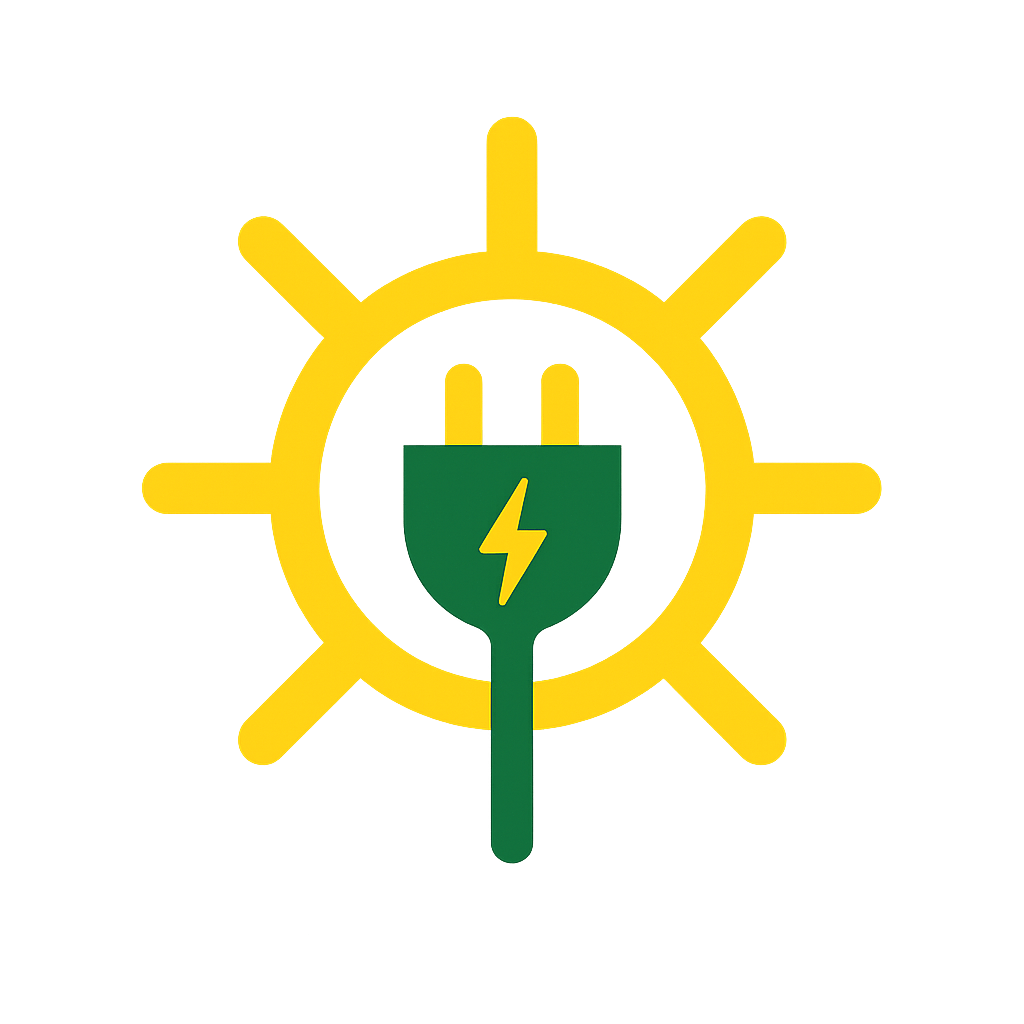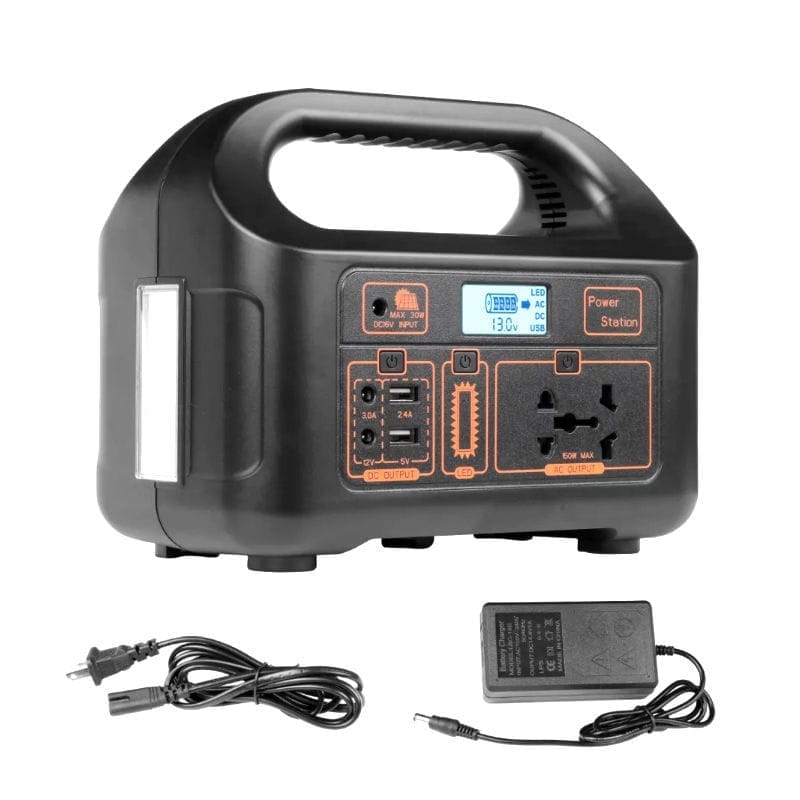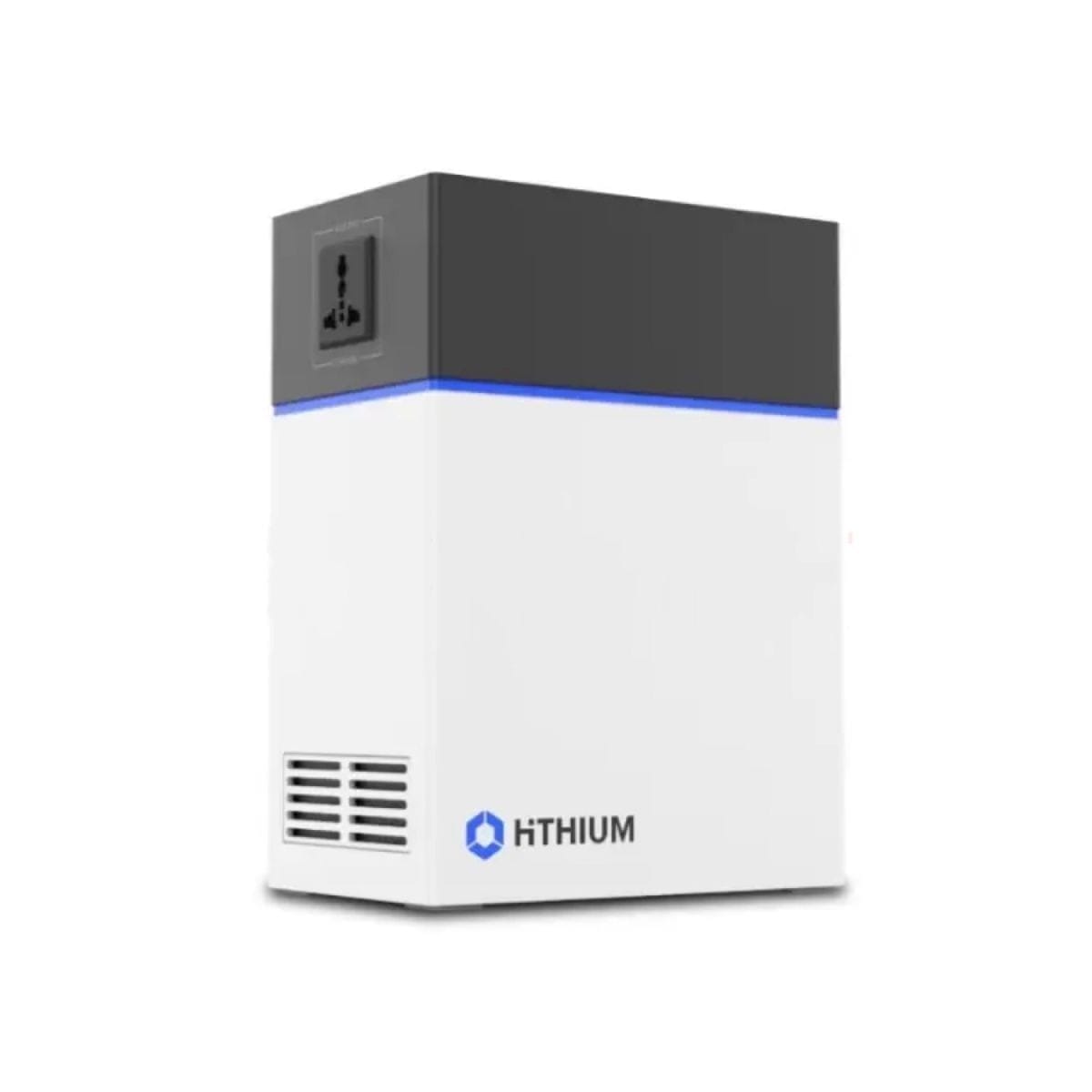What You Need to Power Your TV, Fan, Lights & Laptop with a Portable Solar Generator In 2025 (A Beginner’s Guide to Solar Sizing)
Tired of NEPA Disappointment? You’re Not Alone
It’s 8:30 PM. You just settled in to watch a movie with your family, and then... NEPA strikes again. The lights go out, the TV dies, the fan stops spinning, and the entire room is filled with heat and frustration.
If you're reading this, chances are you’re fed up with unreliable electricity or the constant expenses of running a fuel generator. Maybe you want a portable, clean, and quiet power solution for your home, shop, office, or travels. That’s where portable solar generators come in.
But the question is:
What size of solar generator do you need to power your TV, fan, lights, and maybe a laptop?
Let’s break it down in the simplest way possible — even if you’ve never used solar before.
What Is a Portable Solar Generator?
A portable solar generator is a rechargeable battery-powered system that stores solar energy (from solar panels) and converts it into usable electricity for your devices.
Unlike traditional generators, they:
Don’t need fuel
Don’t make noise
Can be recharged using sunlight
Are perfect for powering essential devices during blackouts or in off-grid areas
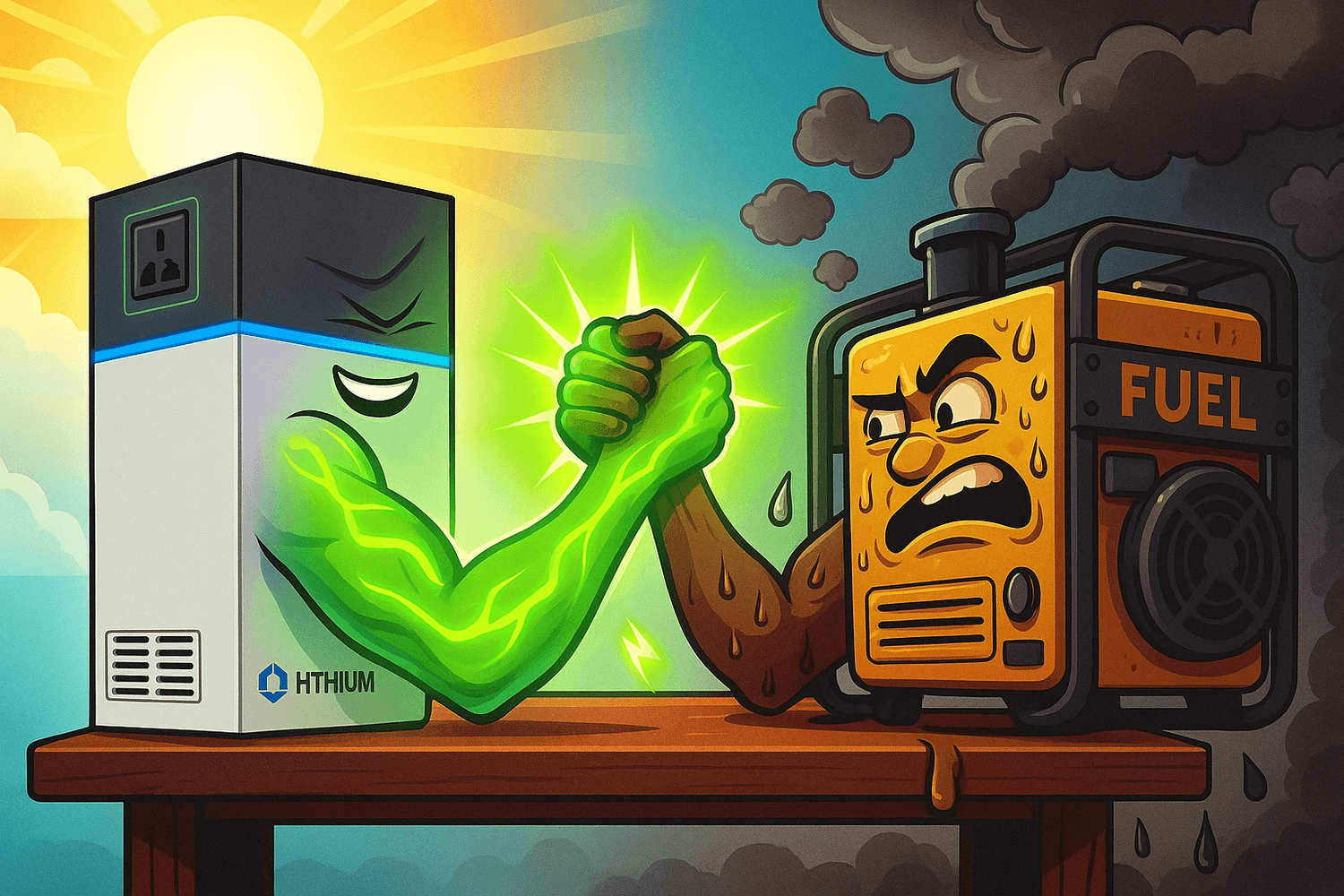
Why Portable Solar Makes Sense in Nigeria
Before we dive into solar sizing, let’s look at why portable solar is growing fast across Nigerian homes and small businesses:
No fuel needed
Silent operation (no gen noise)
Eco-friendly and safe indoors
Lower cost over time
Portable and mobile – perfect for students, barbers, shop owners, and apartments
First Step: What Do You Want to Power?
You need to start by identifying the devices you want to run. This is called load assessment.
Let’s look at the common everyday devices and their typical power needs:
First Step: What Do You Want to Power?
Before you buy a portable solar generator, you need to list the things you want to power with it. This is your first and most important step. For example, let’s say you want to power:
- 1 LED bulb
- 1 Standing fan
- 1 TV
- 1 Laptop
Every device uses a different amount of power. The table below shows how much power each item typically uses:
| Appliance | Wattage (W) | Daily Usage (Hours) | Total Energy Used (Wh) |
|---|---|---|---|
| TV | 60W | 4 hours | 240Wh |
| Standing Fan | 75W | 6 hours | 450Wh |
| LED Bulbs (3 total) | 30W (3 × 10W) | 5 hours | 150Wh |
| Laptop | 50W | 5 hours | 250Wh |
Total energy you need per day = 240 + 450 + 150 + 250 = 1,090Wh (or 1.09kWh).
This is the total capacity your solar generator should be able to supply daily.
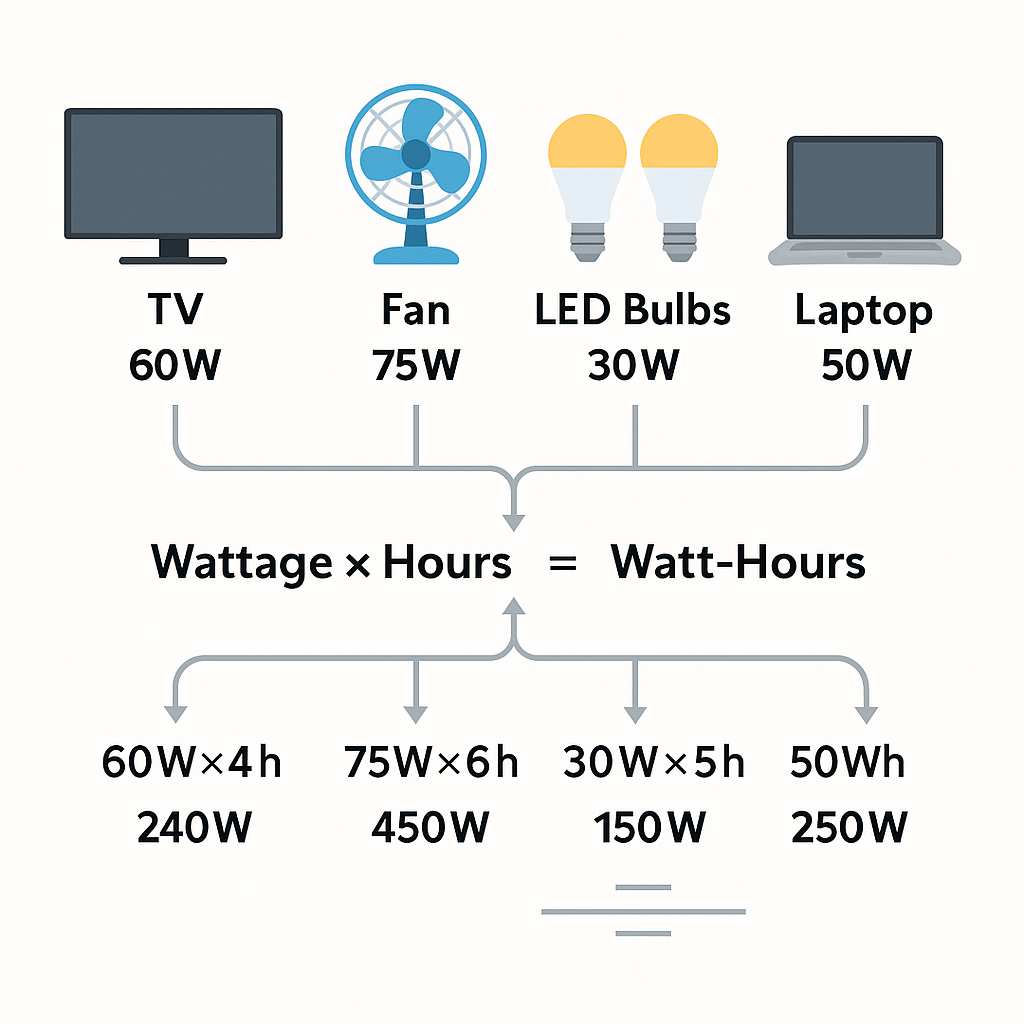
Choosing the Right Solar Generator Size
Now that you know your total daily energy need, you can choose a generator that can handle your load.
Step 1: Battery Capacity (Wh)
If your total daily use is about 1,090Wh, you should choose a generator that offers at least 1,200Wh capacity to give you a buffer.
150Wh – 300Wh ➝ Good for phones, bulbs, maybe one laptop
500Wh – 700Wh ➝ Can run lights, TV, fans for a few hours
1000Wh – 1500Wh ➝ Can power a full evening of basic appliances
Example:
A 550Wh solar generator can power:
Fan for 3 hours (75W × 3 = 225Wh)
TV for 2 hours (60W × 2 = 120Wh)
3 bulbs for 5 hours (30W × 5 = 150Wh)
Total: 495Wh
So yes — it can work, but you’ll need to manage your time and usage wisely.
Step 2: Inverter Output Power (W)
A solar generator doesn't just store power — it must also deliver enough power at once to run your devices.
Let’s say you want to run:
TV (60W)
Fan (75W)
Laptop (50W)
Bulbs (30W)
At the same time:
60 + 75 + 50 + 30 = 215W
You need a generator with at least 250W continuous output to power all of them together.
If your generator's output is only 150W, it will shut down or refuse to power them all at once.
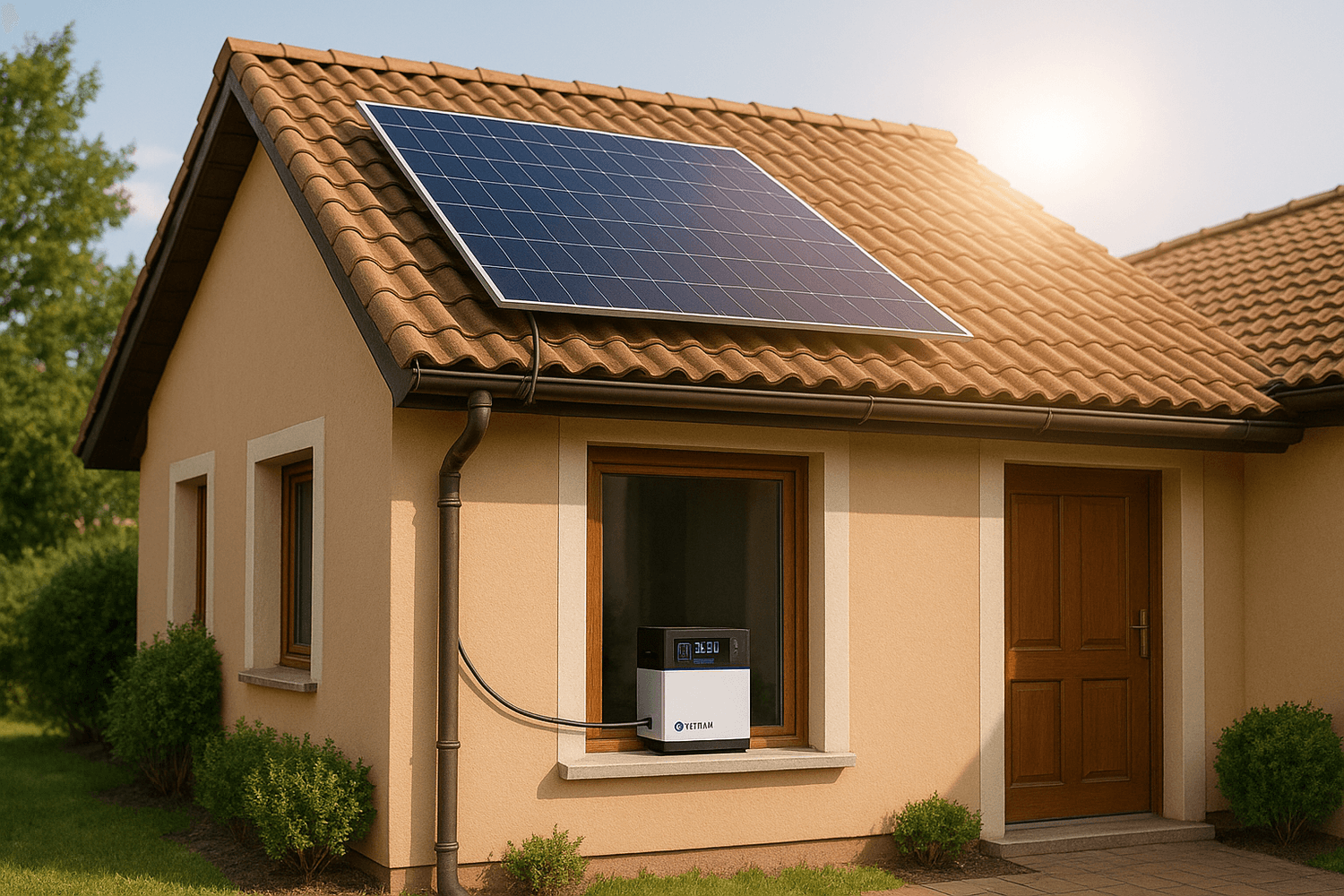
What Size of Solar Panel Do You Need?
Buying a solar generator is one thing — but to keep it running daily, you need to recharge it with a solar panel.
If you consume 1,090Wh per day, you must recharge that same amount every day.
How Much Can a Solar Panel Generate?
In Nigeria, we get about 5 hours of strong sunlight daily (called peak sun hours).
A 100W panel × 5 hours = 500Wh/day
A 200W panel × 5 hours = 1,000Wh/day
A 300W panel × 5 hours = 1,500Wh/day
Recommended:
For 1,000Wh usage, use at least 200W of solar panel
For 500Wh usage, a 100W panel may be enough
Also consider:
Panel efficiency
Cloudy days
Positioning and tilt of the panel
What to Look for Before Buying
When shopping for a solar generator, consider:
Battery Type
Lithium-ion (LiFePO4): Long-lasting, safe, lightweight
Lead-acid: Cheaper but heavier and shorter lifespan
Inverter Output (W)
Must match or exceed your device total running wattage
Charging Options
Can it charge via solar, wall socket, car?
Does it support fast charging?
Number of Ports
AC (for TV, fan, laptop)
USB (for phones)
DC (for routers or LED bulbs)
Included Accessories
Does it come with a solar panel or do you buy separately?
Best Portable Solar Generators in Nigeria (2025 Picks)
Here are beginner-friendly options available now at SolarPawa.com:
SolarPawa 150W Mini Power Station
Capacity: 150Wh
Ideal for students, remote workers
Powers phone, 2 bulbs, and small devices
Very portable and budget-friendly
SolarPawa 2000W Station
Capacity: 1000Wh
Can run fan + TV + bulbs + Wi-Fi for full evening
Best for small families or shared apartments
Frequently Asked Questions
Can I use a solar generator at night?
Yes! They store power during the day and let you use it at night when NEPA takes light.
How long will a 500Wh generator last?
That depends on what you plug in.
TV + fan + 3 bulbs = ~4 hours
Lights only? Up to 12+ hours
Can I charge it with NEPA if there's no sun?
Yes, most solar generators also charge with wall sockets. Some even allow car charging.
What if I use more power than it can supply?
The generator may shut down or not start at all. Always calculate total watts you'll use at once.
Is portable solar better than fuel gen?
For small appliances, yes:
No fuel cost
No noise
Safe indoors
Rechargeable for free
But for heavy appliances like fridge, freezer, iron, etc — you’ll need larger solar systems.
Start Small, Stay Bright
You don’t need millions to escape NEPA wahala.
A simple 550Wh solar generator and 150W solar panel can power your fan, lights, TV, and laptop with peace of mind.
Start with what you can afford.
Track your usage.
Upgrade when needed.
And the best part? You’re saving money every single day NEPA fails you.
👉 Check out our affordable Solar Starter Kits
👉 Chat with us on WhatsApp for custom recommendations
Let SolarPawa help you make the switch — and say goodbye to fuel stress!
About the author
Emayoma Abbey
Email: info@solarpawa.com
Emayoma Abbey is the founder of SolarPawa.com, a platform dedicated to empowering individuals and communities to embrace clean, reliable, and affordable solar energy. With a strong passion for solving real-world power challenges, Emayoma focuses on providing practical, easy-to-understand information that helps people take control of their energy needs.
ABOUT
SolarPawa is Nigeria's trusted online store for affordable and reliable solar energy solutions.
Created with © Emayoma Abbey
